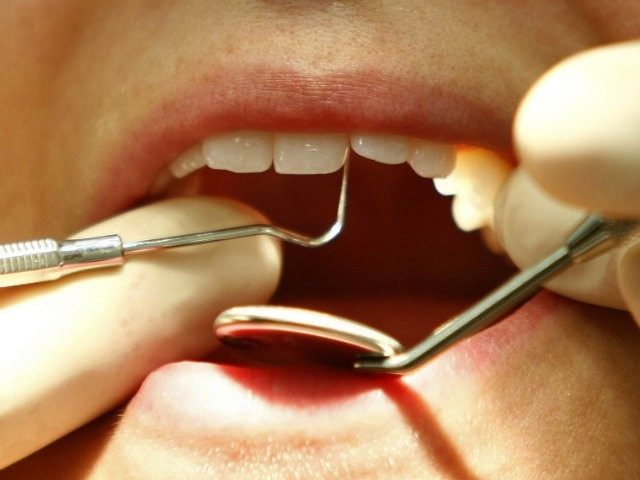What Are Dental Implants
Q: What is a dental implant?
A dental implant is a metallic root of a tooth. It is positioned in the bone of your jaw by an oral implant dental expert as well as enabled to recover in the bone for an amount of time up until the bone-implant union is strong sufficient to support a prosthetic tooth. The implant is constructed out of titanium, a steel that is effectively tolerated by the human body.
Q: How is it used to change missing out on teeth?
A: When you are using an oral implant to replace missing teeth, your dental practitioner will initially identify if you have enough sustaining bone to securely position a dental implant to sustain a prosthetic tooth. The implant is placed into the bone in a really certain operation to ensure that the dental implant will not be declined by your body. In order to position the dental implant in the bone, it is necessary to puncture the periodontal cells. The periodontal cells will typically be finished either over the dental implant or around the implant after it is placed into the bone. The dental implant will after that be permitted to heal in the bone for numerous months till the union is strong enough to sustain the prosthetic tooth.
Q: What sort of dentist do I need to see?
A: Any kind of dental professional can place or recover a dental implant. Dental implants are normally placed by Oral Surgeons, Periodontists, Prosthodontists, or General Practitioners. Prosthodontists and also General Practitioners will usually be the ones that restore the “teeth”. You should begin by talking to your family doctor or a prosthodontist as well as figure out just how much experience as well as the training they have in the basic area of Oral Implantology. If you elect to opt for among these professionals, you can follow their recommendation as to what will actually put your dental implant.

Q: How much do implants cost?
A: Typically around $1500 to $2000. Consult with your dental expert.
Q: Are oral implants a long-term option for tooth loss?
A: Yes dental implants are considered to be a long-term solution. There are, nonetheless, some cautions … Sometimes the oral implant does not incorporate and it will certainly be lost. In those cases, one more implant could be put that would certainly remain there and come to be long-term. In some cases, the reconstruction will have to be repaired or serviced … In fact, the majority of reconstructions will certainly require some level of upkeep and often replacement over a period of time. You must be gotten ready for future costs hereof.
Q: Exist individuals that can not have oral implants?
A: Most everybody can have dental implants positioned, however, there are some exceptions, and also some warns … Clients who are unrestrained diabetics or have severe emotional problems are bad candidates for oral implants. Individuals with serious clinical concessions are not good candidates for anything including surgical treatment although the oral implant treatments can usually be carried out under regional anesthetic and are consequently less high-risk than surgical procedures calling for general anesthesia.
People missing a large amount of bone are bad prospects, yet bone grafts can be utilized to replace the missing out on bone as well as allow the individual to have dental implants. You ought to talk extremely meticulously to your dental practitioner and learn simply exactly how good a candidate you are for dental implants. If there are things that will certainly make you a much better candidate, you ought to understand them and also help to make the decision regarding whether they will certainly be executed.
Those individuals who need significant bone implanting for dental implant positioning should engage the services of a qualified oral specialist. Numerous small bone grafts can be achieved by any kind of qualified dental professional placing oral implants. Head over to the cheapdentalimplants.org website for more info on dental implants.
7 How to avoid troubles with dental implants.
1. Find out that has implants as well as ask them that did them and exactly how they came out.
2. Locate certified ADA specialists, preferably a Board Certified Prosthodontist, to treat you. This is an extremely demanding location as well as specialized training is called for.
3. Obtain a thorough, written treatment strategy consisting of all fees as well as make certain there are no surprise prices.
4. Obtain a 2nd Consultation to help you evaluate the very first one.
5. Ask the dental practitioner for names of people that she or he has actually treated and for the names of other dental practitioners that he works with. Call them and find out as long as you can about the sort of work this dental professional does.
6. Establish the commitment that this dental expert has to dentistry and to the area of dental implantology. Does she or he instruct? Does he or she publish articles in scientific dental literary works? Is she or he was taken into consideration as an “expert” in this field of treatment.
7. Look for a person who is confident, mindful as well as comprehensive in his or her technique for your oral work.
8. Call the state board of dental care and also figure out if there are any rulings versus this expert concerning his oral technique.
9. Do not hesitate to ask the amount of these procedures this dental practitioner has actually done effectively.
10. Ask the dental professional about failures. What happens if an implant fails. What are the alternatives if this therapy plan does not function?
